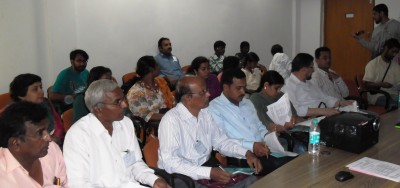SM Fasiullah for Beyondheadlines
Hyderabad : India has empowered its citizens by passing Right to Information Act (RTI Act) in 2005, but its implementation for bringing transparency and accountability in governance faces varied challenges.
To discuss an array of issues including the impact of the RTI Act on citizens, National Campaign for People’s Right to Information (NCPRI) and United Forum for RTI Campaign (UF-RTI) had organized a three-day national convention in Hyderabad from 16 – 18 February, 2013.
Activists from across India, who participated in the convention, discussed three important issues: usage of the Act by citizens, progress of the Government’s role in utilizing and promoting the Act, and the appointment of information commissioners.
After the convention, Prof. Vinod Pavarala of HCU and UNISCO Chair on Community Media told Beyondheadlines that the public needs to be engaged with media to ensure that they are run democratically.
“People needs to engaged with media constantly to make sure they are run democratically, in a way responsive to citizens’ genuine needs,” said Pavarala.
“Moreover, mainstream media is unable to cater to real needs of the people, focus on rural issues and the problems of the marginalized sections of the society.
“The media firms are tend to be more urban oriented, therefore, citizens have to come together to think of alternative modes of communication.”
Pavarala urged marginalized people to learn media technologies and share the information they possess through alternative modes such as radio and mobile phones with authorities and the public.
Commenting about the link between communication media and RTI, Pavarala said the communication media can be a natural partner for RTI.
“For instance, if bribe in asked for any work in a government office then this problem can be articulated to large numbers of people through a community media platform.”
Sukumar Muralidharan, South Asia project manager for International Federation of Journalists, has remarked about media monopoly and the gross abuse of public interest in journalism.
He pointed out that 44% of the total advertisement revenue in print media goes to just three newspapers: Times of India, Hindustan Times, and The Hindu.










